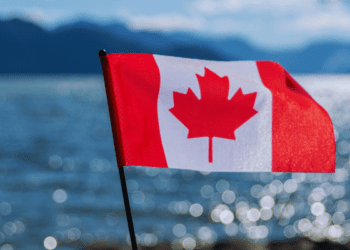This morning the latest U.S. unemployment numbers were released showing unemployment at 9.9 percent, a slight uptick from last month’s estimate of 9.7 percent unemployment. The U.S. Department of Labor estimated that non-farm payroll employment increased by 290,000 jobs in April.
Also today, Statistics Canada announced that the unemployment rate for Canada had fallen to 8.1 percent. An estimated 109,000 jobs were added in Canada in April, the largest monthly increase since August 2002 and a little more than one third the number of jobs created in the United States, even though Canada has just one tenth the population of the United States.
Historically when it comes to unemployment, Canadian rates have been higher than U.S. rates. Labor economists pointed to lower labor mobility (as workers had strong attachments to their home provinces and resisted moving across Canada to find jobs, and as they were confronted by provincial labor market protectionism that persists in some places today) to explain the higher Canadian unemployment figures. This changed in 2009, when Canadian unemployment fell below the U.S. rate for the first time.
The strength of commodity prices has fueled the rise in the value of the Canadian dollar against the U.S. dollar, and accounted for some of Canada’s economic growth performance since 2008. But the higher Canadian dollar was supposed to put the squeeze on Canadian productivity, not generate more jobs.
So, what is happening in Canada that is leading employers to begin hiring again, while U.S. employers hold off adding to their payrolls?
One reason is that Canada has had far more stable, predictable and yes, boring economic policies than the United States since the current recession began.
Imagine that you are a U.S. investor or employer, looking at the economy today and trying to decide whether to hire.
• The Obama administration and Congress have just passed a massive new health care entitlement program, and no one can tell you yet what it will mean to your liability for taxes and employee benefits.
• Congress is considering energy and climate change legislation that is likely to raise energy costs and possibly taxes, but at this stage everything remains open for debate and it is not clear when you will face these changes.
• With banks clamping down on business credit as well as consumer credit, Congress has launched a major overhaul of financial services regulations and politicians are scapegoating financial institutions like Citibank and Goldman Sachs.
• President Obama recently relaunched the immigration reform debate in the United States, which could lead to legislation that will bring more foreign labour into the U.S. workforce legally – or it could lead, as President Bush’s similar effort in 2006 did, to an attrition of the undocumented workforce as many individuals chose to self-repatriate and increased enforcement sent many others home involuntarily. Either way, wage rates will be affected, but in which direction?
• The Bush administration’s tax cuts are scheduled to expire at the end of 2010, and Congress and the Obama administration have sent mixed signals on the extent to which these may be renewed or scrapped entirely.
• The U.S. deficit and national debt are projected to climb sharply over the next several decades thanks to the retirement of the baby boom generation and the simultaneous expansion of social welfare benefits. On top of federal fiscal woes, a handful of state governments may face insolvency soon. Taxes seem certain to go up to help pay the costs of current programs and meet expanding debt service obligations – but the shape of tax increases is important and unknown. Will consumption taxes, such as a new federal value-added tax be imposed, or will income tax rates go up, existing tax exemptions be cut, or will a series of excise taxes, user fees, and levies be added to expand government revenue?
There are more factors in play, but from these five issues alone, the dilemma for a U.S. investor or employer is clear: uncertainty. Uncertainty about economic policies makes it difficult to judge risk, so investors and employers flee to safety. Among other things, they build cash reserves, seek to improve productivity with their current workforce by investing in capital equipment under existing tax policy (making additional hiring less necessary), and buy commodities as a hedge against inflation (pushing their prices up and boosting the value of the Canadian dollar).
Meanwhile in Canada, the Harper government has chosen a steady course: Canadian federal tax rates are stable or trending downward, governments at all levels in Canada are seeking to control costs associated with entitlement programs, and successful businesses are praised rather than impugned by Canadian politicians.
In short, Canada has a boring economy. And as Canada’s ambassador in Washington Gary Doer is fond of saying, “Boring is sexy” in today’s world.
American investors and employers looking at the Canadian economy are falling in love – with the girl next door.
Christopher Sands is a Senior Fellow at the Hudson Institute and a member of the Research Advisory Board of the Macdonald-Laurier Institute.




